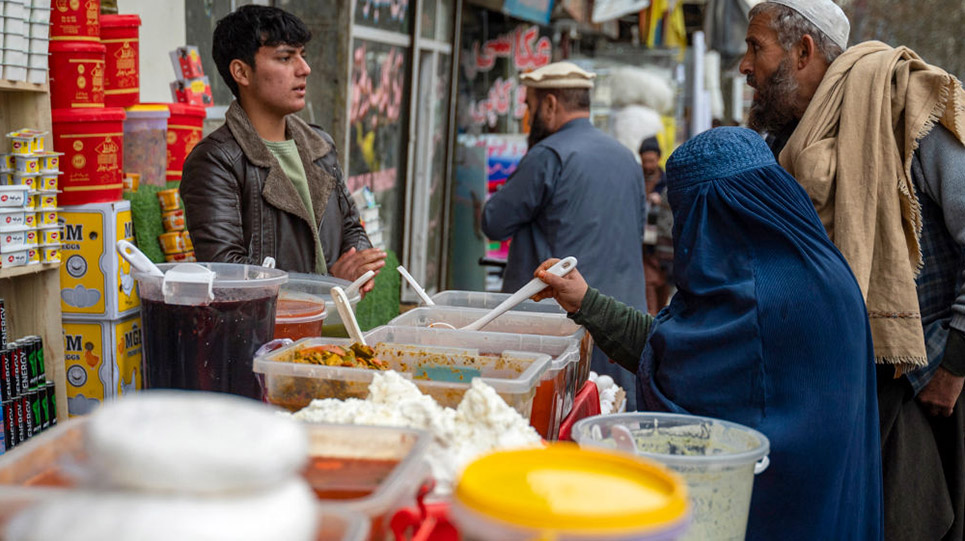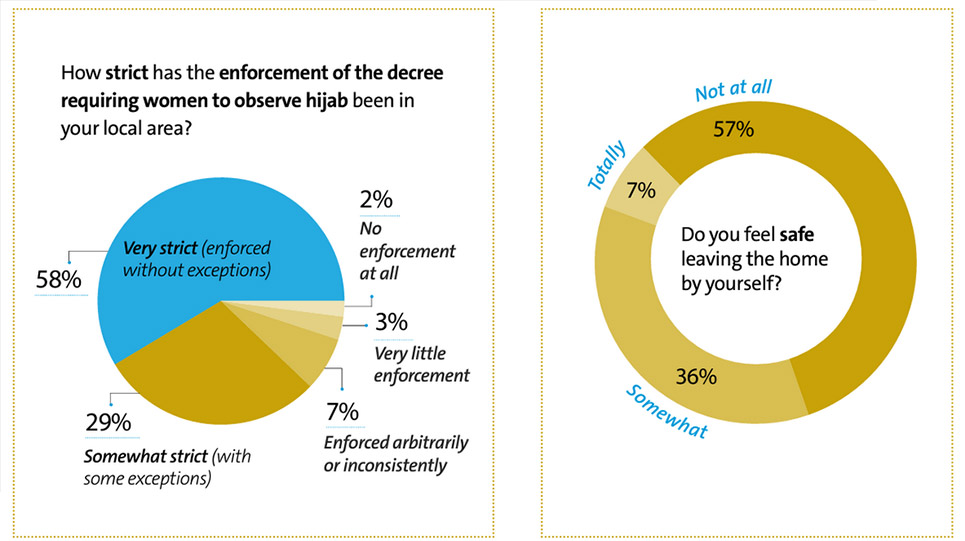
An Afghan woman shops at a market in Kabul on March 10, 2024. (Wakil Kohsar / AFP via Getty Images)
Anselma Ellingwood
In a nationwide women’s consultation, Afghan women have expressed “dread” and “anxiety” over the potential international recognition of the de facto authorities (DFA), with 67 percent stating it would severely affect their lives.
The consultations and survey on the situation of women in Afghanistan convened 745 Afghan women from across all provinces. The report was put together by U.N. Women, the International Organization for Migration (U.N. Migration), and the United Nations Assistance Mission in Afghanistan (UNAMA).
Among the participants, a majority stated that if such international recognition were to occur, it should only be contingent upon the removal of all restrictions in place by the Taliban against Afghan women and girls.
Afghan women have described how the enforcement of the hijab decree has increased harassment towards them and heightened their fears of being arrested and dishonored by being in police custody. It is considered shameful and dishonorable for the woman and her family when she is arrested and placed into custody, sometimes even resulting in suicide or death by her family.
Most women traditionally wear the hijab, but its enforcement is unpredictable and can be harsh, contributing to uncertainty in their daily lives. Instances of harassment are sometimes filmed and posted online, leading to a “loss of face,” or public humiliation.
Women reported feeling unsafe leaving their home without a mahram, or male guardian. One woman said that police informed her that they “sought to erase women from public spaces, step by step.” Following the report, UNAMA consulted 28 women in Kabul who had witnessed the DFA forces rounding up women and girls in public and taking them to police stations where they had to call a male family member to pick them up. The male family member then had to pay a fine and sign a document to ensure that the woman would wear the full hijab in the future.

Women described how enforcement has increased harassment in public spaces and further limited their ability to leave their homes. They fear arrest and the long-lasting stigma and shame associated with being taken into police custody.
Only 1 percent of women felt they had “good” or “full” influence on community decision-making, a sharp decrease from 17 percent in January 2023. Women lack the infrastructure to gather and share their views and experiences or to build community and engage on issues they consider important. Women spoke about the low levels of social trust with 96 percent reporting that “most people cannot be trusted,” including neighbors, because anybody could be a Taliban informant. This risk leads to women feeling unsafe in their own communities and unable to help their neighbors.
Women also described an “intergenerational and gendered impact” of the DFA restrictions on shifting attitudes of children. Boys appeared to be “internalizing the social and political subordination of their mothers and sisters”, while girls’ perceptions of their future were changing due to the current conditions.
Importantly, women requested that the international community not recognize the Taliban unless restrictions are removed. The Taliban has a current track record on women’s rights and “cannot be trusted to improve the current situation.”
Women voiced profound disappointment with member states that engaged with the DFA, overlooking the “severity of an unprecedented women’s rights crisis” akin to gender apartheid. Women said that the best way to improve their situation was to link international aid to better conditions for women and to open up communication pathways for women to directly address the Taliban.
The voices of Afghan women are clear: Recognition of the DFA must be conditional on the restoration of women’s rights and freedoms, signaling to the world that women’s dignity is non-negotiable.



